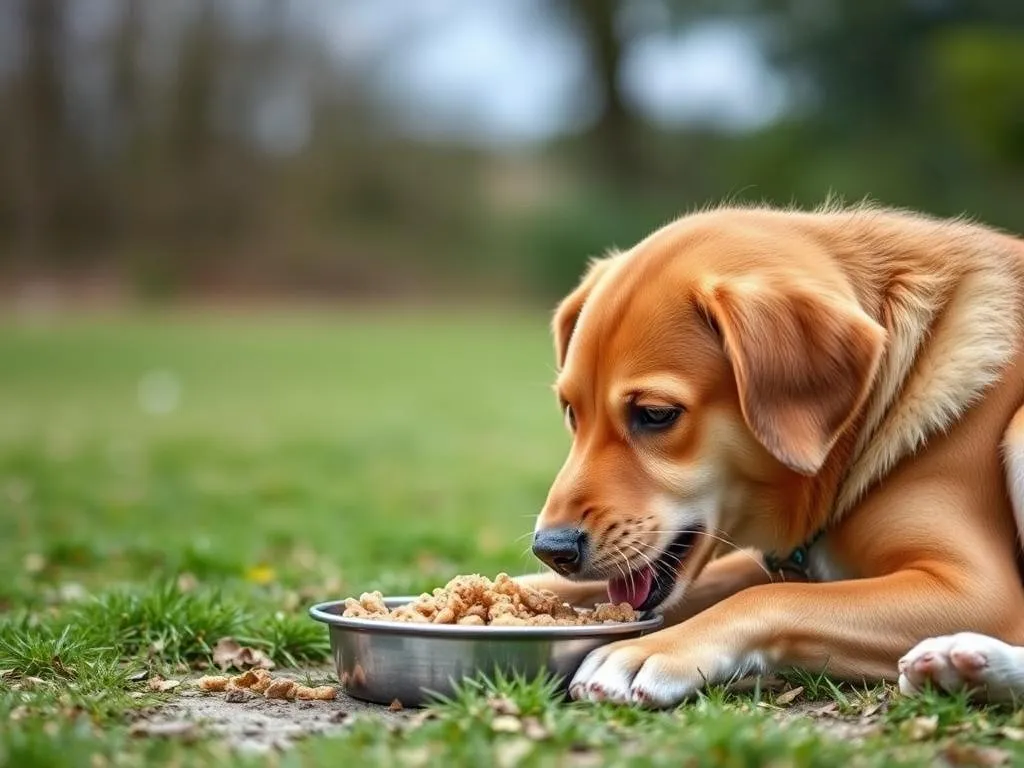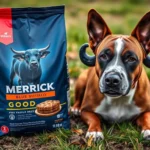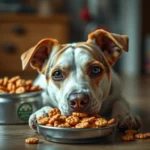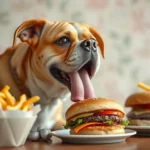
Introduction
Proper dog nutrition is crucial for maintaining the health and well-being of our furry companions. Dogs, like humans, require a balanced diet to thrive, and feeding them the right food can make a significant difference in their overall health. However, one common issue that many dog owners face is the problem of their dogs eating other dogs’ food. This behavior can lead to various health complications, including obesity, digestive issues, and competition-related stress.
In this article, we will explore the importance of proper nutrition, the reasons why dogs might eat other dogs’ food, and strategies to prevent this behavior. By addressing these issues, you can ensure that each dog in your household receives the right nutrition while maintaining a peaceful feeding environment.
Understanding Dog Nutrition
The Basics of Dog Nutrition
To effectively manage your dog’s eating habits, it is essential to understand the fundamentals of dog nutrition. Dogs require a variety of essential nutrients, including:
- Proteins: Vital for muscle development and repair.
- Fats: Important for energy and healthy skin and coat.
- Carbohydrates: Provide energy and aid in digestion.
- Vitamins: Support various bodily functions, including immunity and vision.
- Minerals: Essential for bone health and metabolic processes.
A balanced diet that includes all these nutrients is necessary for your dog to lead a healthy life.
Different Types of Dog Food
When it comes to feeding your dog, you have several options available:
- Commercial Dog Food: This includes dry kibble and wet food, which are formulated to meet the nutritional needs of dogs.
- Homemade Diets: Some owners prefer to prepare meals at home, ensuring that their dogs receive fresh ingredients.
- Raw Diets: A controversial option that involves feeding raw meat, bones, and vegetables.
Each type of dog food has its pros and cons, and it’s essential to choose the one that best suits your dog’s needs.
Nutritional Requirements by Age and Breed
Just as humans have different dietary needs at various stages of life, so do dogs.
- Puppies: Require higher protein and fat content to support growth and development.
- Adult Dogs: Need a balanced diet to maintain energy and health.
- Senior Dogs: May require lower calories and specific nutrients to manage age-related health issues.
Additionally, certain breeds may have unique dietary considerations that should not be overlooked.
Reasons Why Dogs Eat Other Dogs’ Food
Natural Instincts
One of the primary reasons dogs eat other dogs’ food is rooted in their natural instincts. Dogs are pack animals, and in the wild, competition for food is common. This instinct can manifest in multi-dog households, where one dog may feel compelled to eat another dog’s food to assert dominance or ensure survival.
Nutritional Deficiencies
In some cases, dogs may eat other dogs’ food as a response to nutritional deficiencies. If a dog feels that their diet is lacking in certain nutrients, they may seek out alternative sources of food. Signs of nutritional deficiencies can include:
- Lack of energy
- Dull coat
- Weight loss
- Gastrointestinal issues
Behavioral Issues
Anxiety and stress can also lead to food-stealing behaviors. Dogs that experience anxiety may resort to eating other dogs’ food as a coping mechanism, while some dogs may exhibit food guarding behaviors, making them more likely to eat whatever food is available.
Environmental Factors
The feeding environment plays a significant role in a dog’s eating habits. In households with multiple dogs, feeding schedules and spaces can create competition. If dogs are fed at the same time and in close proximity, it can lead to one dog stealing food from another.
How to Prevent Your Dog from Eating Other Dogs’ Food
Establishing a Feeding Routine
One of the most effective strategies to prevent dogs from eating each other’s food is to establish a feeding routine. Scheduled feeding times for each dog can help minimize competition and ensure that each dog receives the right amount of food. By sticking to a consistent schedule, you can train your dogs to understand when it’s time to eat and reduce the likelihood of stealing.
Separate Feeding Areas
Creating designated spaces for each dog to eat can also help prevent food stealing. By providing separate feeding areas, you can reduce distractions and competition during mealtime. This can be achieved by:
- Using baby gates to separate the dogs during feeding.
- Setting up feeding stations in different rooms.
Monitoring and Supervision
During mealtimes, it is essential to monitor and supervise your dogs. By keeping an eye on their interactions, you can intervene if one dog attempts to steal food from another. By reinforcing positive behaviors and discouraging stealing, you can help teach your dogs to respect each other’s space during meals.
Training Techniques
Implementing training techniques can also be beneficial in managing food stealing behavior. Positive reinforcement strategies can encourage your dog to stay away from other dogs’ food. Here are some effective commands and techniques to consider:
- “Leave it” Command: Teach your dog to ignore food that doesn’t belong to them.
- Reward Good Behavior: Provide treats and praise when your dog eats their own food without attempting to steal from others.
Addressing Behavioral Issues
Understanding Food Guarding
Food guarding is a behavior exhibited by some dogs where they protect their food from other dogs. This behavior can lead to stress and conflict during mealtime. Understanding how to identify food guarding is crucial for addressing the issue. Signs may include:
- Growling or barking when approached while eating.
- Stiff body language or a tense posture.
- Attempting to block access to their food.
If you suspect that your dog is food guarding, it’s essential to manage the situation carefully.
Dealing with Anxiety and Stress
If anxiety is driving your dog’s behavior, it is crucial to address it. Here are some tips for managing anxiety that may lead to food stealing:
- Provide a safe space for your dog to retreat to when feeling overwhelmed.
- Engage in regular exercise to help reduce stress levels.
- Use calming products, such as anxiety wraps or pheromone diffusers.
Consulting a Professional
In cases where behavioral issues persist, seeking help from a veterinarian or a professional dog trainer may be necessary. Professionals can provide personalized advice and training strategies to address the specific needs of your dog.
Ensuring Proper Nutrition for All Dogs
Choosing the Right Food
Selecting nutritious food for your dog is essential to their overall health. Look for high-quality ingredients and ensure that the food meets your dog’s specific dietary needs. Consider factors such as:
- Age and life stage
- Breed and size
- Any food allergies or sensitivities
Supplements and Treats
Supplements can enhance your dog’s diet in certain situations, but they should be used cautiously. Consult your veterinarian before introducing any new supplements to ensure they are safe and beneficial for your dog. Additionally, treats should be given in moderation to prevent weight gain.
Regular Vet Check-ups
Routine veterinary visits are crucial for maintaining your dog’s health and nutrition. Your veterinarian can provide valuable insights into your dog’s dietary needs and any necessary adjustments to their diet. Regular check-ups can help catch potential issues early, ensuring your dog stays healthy and happy.
Conclusion
In summary, understanding dog nutrition and addressing the behavior of dogs eating other dogs’ food is essential for maintaining a harmonious multi-dog household. By establishing feeding routines, creating separate feeding areas, monitoring mealtimes, and employing effective training techniques, you can significantly reduce food-stealing behavior. Additionally, addressing any underlying behavioral issues and ensuring that all dogs receive proper nutrition will contribute to their overall health and well-being.
Implementing these strategies will not only help manage your dogs’ eating habits but also promote a peaceful environment where each dog can thrive on their individual diets.









